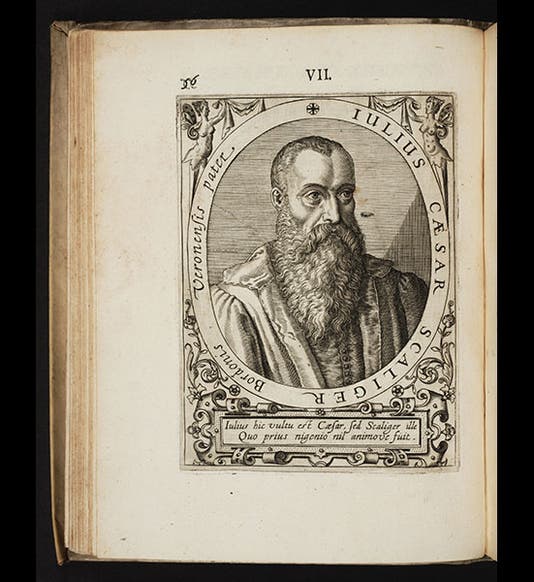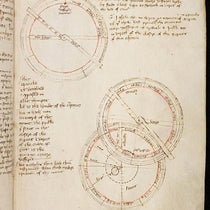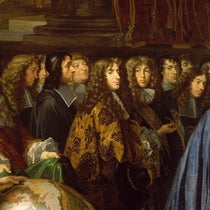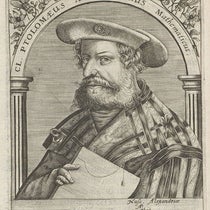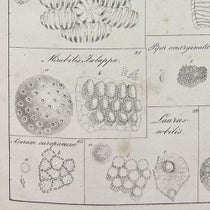Scientist of the Day - Julius Caesar Scaliger
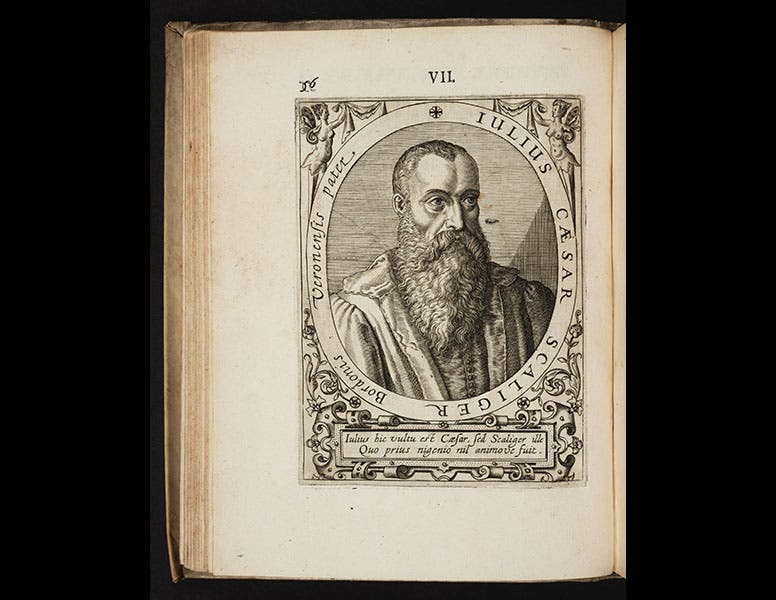
Linda Hall Library
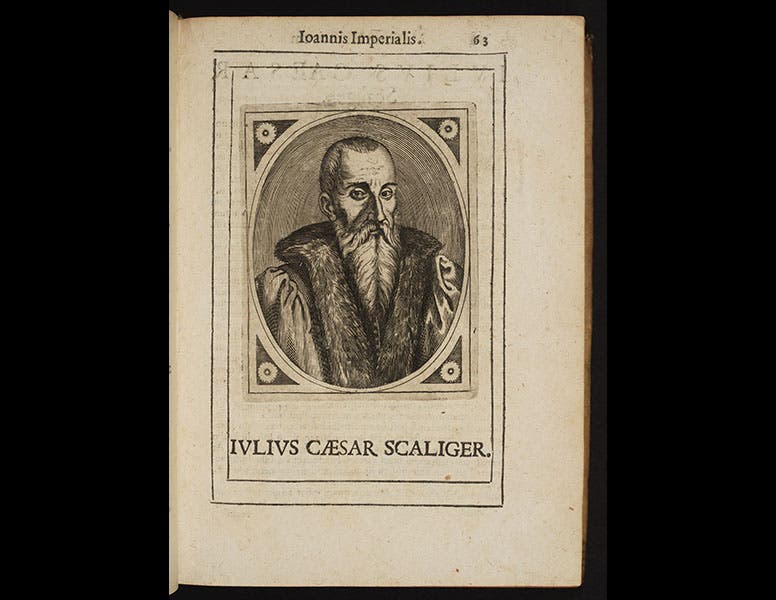
Linda Hall Library
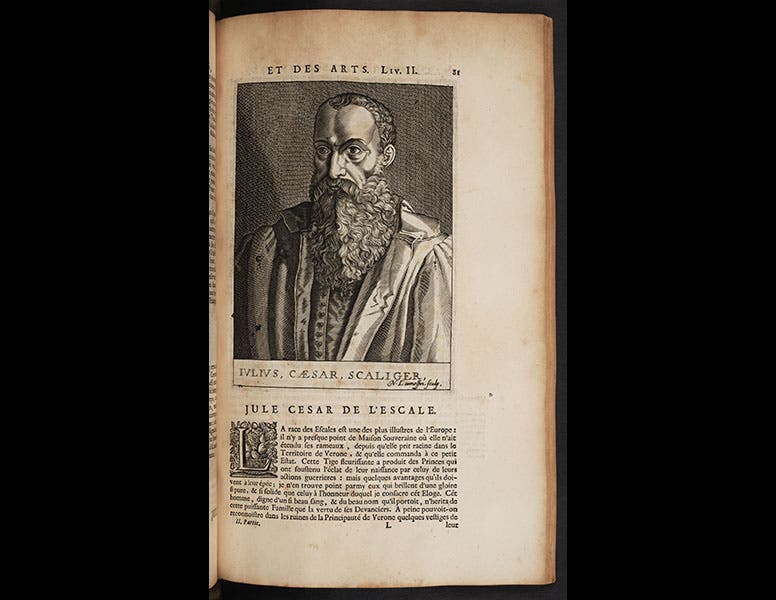
Linda Hall Library
Julius Caesar Scaliger, an Italian physician and classical scholar, was born Apr. 23, 1484. Scaliger came into the world with the last name Bordone, but somewhere along the line he decided that his family was descended from the noble house of La Scala of Verona. Scholars now universally dismiss this, but the adopted name Scaliger, fashioned from La Scala, has stuck.
Scaliger is best known for his response to a massive encyclopedia by Girolamo Cardano, De subtilitate (1550). Cardano was partial to natural magic, and his book is filled with discussions of occult forces, astrology, and cosmic correspondences. Scaliger, a staunch Aristotelian, would have none of Cardano's magical explanations, and so he wrote an equally massive rejoinder called Exotericarum exercitationum liber XV (1557), which means The Fifteenth Book of Exoteric (i.e, not esoteric or exotic) Exercises. The joke, if it was a joke, is that the "15th book" is all there is--if the other 14 books were written, which is doubtful, they have not survived. Which is a good thing, since Liber XV runs to about 450 leaves, i.e., 900 folio pages. Cardano's book was initially the more popular one, going through several editions rather quickly, but about 1580, Scaliger's tome began to attract more attention and reprints, as natural philosophers turned away from magical explanations and towards mechanical causes, and Scaliger’s Exercises remained popular up through the 1650s. We have three early editions of Cardano's book (including the first edition of 1550) in our History of Science Collection, but only a 1582 edition of Scaliger's Exercises. We are trying to find a first edition of Exotericarum exercitationum to go with our first edition De subtilitate.
Since we have cannot show you any images from the book that we do not own, we thought we would display instead three contemporary or near contemporary portraits of Julius from our scientific portrait books collection; they were taken from, in order, J.J. Boissard, Icones (1597-99); Giovanni Imperiali, Musaeum historicum (1640); and Isaac Bullart, Academie des sciences et des arts (1682).
One should not confuse Julius Caesar with his son, Joseph Justus Scaliger, a classical scholar who would become even more renowned than this father for establishing the field of scientific chronology. The younger Scaliger was born on Aug. 5, and we will try to give him his due when this date next rolls around.
Dr. William B. Ashworth, Jr., Consultant for the History of Science, Linda Hall Library and Associate Professor, Department of History, University of Missouri-Kansas City. Comments or corrections are welcome; please direct to ashworthw@umkc.edu.

